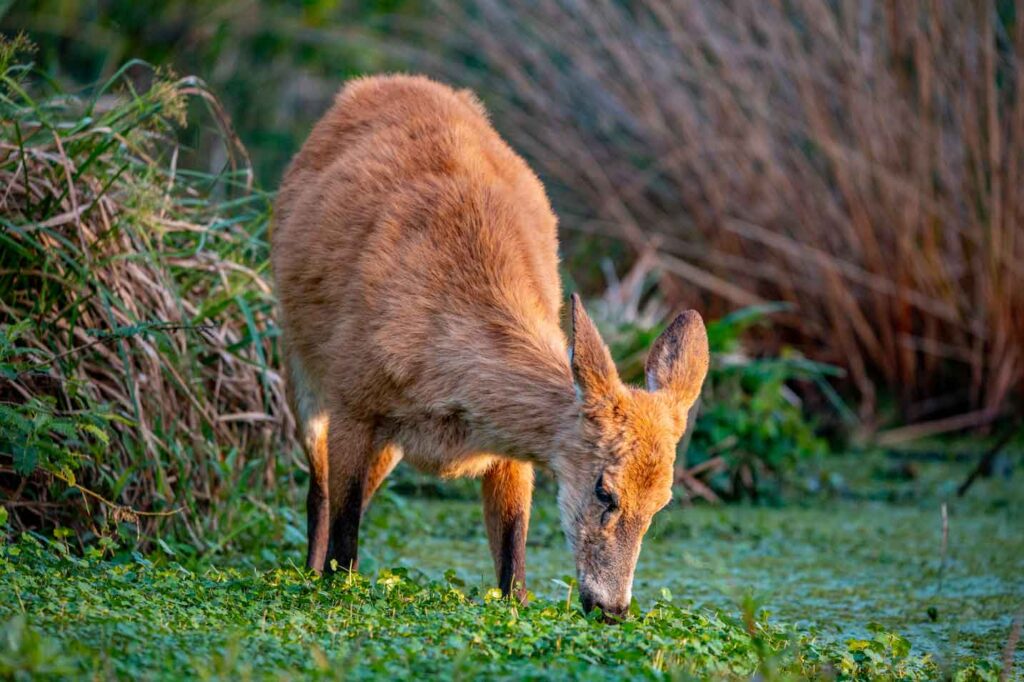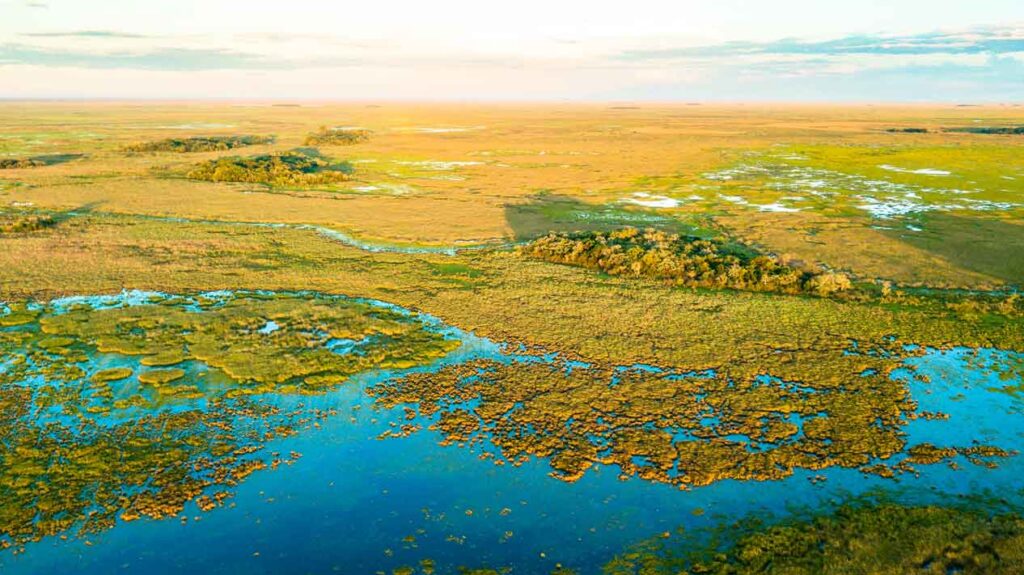The Iberá Wetlands, located in the province of Corrientes, Argentina, represent an extensive area of unique biodiversity. However, the effects of climate change are becoming increasingly evident and concerning in this vital ecosystem.
Understanding the impact of climate change, protecting the environment and taking action to preserve the wetlands are top priorities.
At Hotel Puerto Valle, we are committed to caring for our surroundings. We are proud to be among the 142 certified Green Hotels accommodations (“Hoteles Más Verdes“) in Argentina and the only one in Corrientes.
Would you like to know more about the impact of climate change in Argentina and this region? Let us guide you through the details and what we can do together to revert the consequences and help our planet.



What Is Climate Change?
First thing first. What des Climate Change mean? Climate change refers to the long-term alteration of temperature, precipitation patterns, and other climatic factors. Basicallly, how the Earth’s temperature has been rising over the las years, due to human activities.
But Climate Change is a complex matter, with several causes and consequences. Other natural processes such as volcanic eruptions and solar variations contribute to climate change. The truth is that the planet’s average temperature has been consistently rising in recent decades, directly linked to anthropogenic causes.
Causes of Climate Change
The main causes of climate change include:
- Deforestation: The destruction of forests reduces the planet’s capacity to absorb carbon dioxide (CO₂), a major greenhouse gas.
- Fossil Fuels: The burning of coal, oil, and natural gas for energy releases vast amounts of CO₂ and other pollutants.
- Waste Generation: Landfills emit methane, a potent greenhouse gas, while plastic pollution disrupts ecosystems.
- Agricultural Practices: Livestock farming emits methane, and over-irrigation depletes water resources.
All over the world, the consequences are far-reaching and interconnected. First of all, the rising Global Temperatures affect ecosystems, glaciers, and sea levels.
Climate Change in Argentina
Argentina has experienced significant climate changes over recent decades. According to the Pan American Health Organization (PAHO) and the World Health Organization (WHO), rising temperatures are affecting ecosystems and communities across the country.
- Increased Temperatures: A general temperature rise has been recorded nationwide, with the northeastern region particularly affected.
- Hydric Stress: Reduced water availability threatens agricultural production and water supplies.
- Increased Precipitation: Northeast Argentina is witnessing more intense and erratic rainfall, which disrupts ecosystems and infrastructure.
- Loss of Biodiversity: Many species cannot adapt to rapidly changing conditions.
The Iberá Wetlands in Argentina, a critical ecosystem, are not immune to these changes. Let’s see how our region has been affected by climate change.
The Impact of Climate Change in the Iberá Wetlands
Variations in Precipitation
Climate change alters rainfall patterns, affecting water levels in the Iberá Wetlands. This has consequences on biodiversity, the water cycle and the communities that depend on these resources.
Rising temperatures
Higher temperatures alter the life cycles of fauna and flora of the wetlands.. Reproduction, migration, and feeding behaviors are disrupted, and increased evaporation threatens the region’s delicate water balance.
Risk of extreme weather events
Climate change causes frequent and intense storms or floods and other extreme weather events. This has a negative impact on infrastructure and local communities, as well as on natural ecosystems.
At Hotel Puerto Valle, we prioritize the safety of our team and guests by suspending activities during extreme weather conditions.
Shifts in Biodiversity
The animal and flora species of the Iberá Wetlands are uniquely adapted to specific conditions. Climate change alters these habitats, shifting species distribution and jeopardizing biodiversity.
Rise in the sea level
Although inland, the Iberá Wetlands are connected to coastal systems. Rising sea levels can influence water flows, impacting nearby ecosystems.
Say yes to sustainable tourism
What can we do to counteract the consequences of climate change? Sustainable tourism minimizes negative environmental impacts, respects and promotes local culture, and supports local economies. This approach balances the economic, social, and environmental aspects of tourism to ensure that future generations can enjoy the same resources and attractions.
Join us in making environmental care a way of life. Together, we can protect the Iberá Wetlands and the planet for generations to come.

